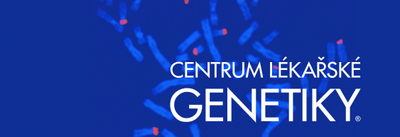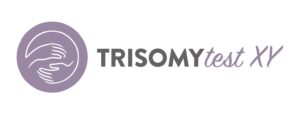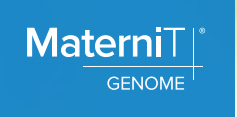Non-invasive prenatal testing of the most common chromosomal abnormalities of the fetus from blood of a pregnant women (NIPT)
1. Non-invasive TRISOMY test
Non-invasive prenatal testing (NIPT) is a modern technique using massive parallel or targeted sequencing of free foetal DNA (cfDNA) from the blood of a pregnant woman to accurately detect chromosomal defects in the foetus in the current pregnancy. The examination is performed on Illumina MiSeq® and NextSeq® sequencers.
This examination is performed in indicated patients according to the Recommended Practice of the Society of Medical Genetics of the Czech Medical Association of J. E. Purkyně as an alternative to amniotic fluid or chorionic villus sampling and in selected high-risk patients.
TRISOMY test XY by means of the whole genome analysis of free foetal DNA using bioinformatic and biostatistical methods allows to identify the most common numerical deviations – trisomies of chromosomes 13 (Patau syndrome), 18 (Edwards syndrome) and 21 (Down syndrome), numerical deviations of sex chromosomes responsible for Turner syndrome, Klinefelter syndrome, XYY and XXX syndrome. The patient is instructed in detail that this examination may reveal aneuploidies of the chromosomes mentioned above – it is therefore not an examination of the entire foetal karyotype or an examination of microdeletion and microdeletion syndromes.
In 1-4% of cases, the result cannot be established and the sampling must be repeated or a full sampling of amniotic fluid must be performed.
The detection rate of this test for Down, Edwards and Patau syndromes is more than 99%. Therefore, a very low risk of false negative test results cannot be ruled out; 100% non-invasive detection of these syndromes is not yet possible. In the event of a positive non-invasive test result, the result must be verified by invasive amniotic fluid testing.
Invasive testing (chorionic villus sampling or amniotic fluid collection) is medically appropriate when pathological ultrasound findings are present (higher NT, foetal VVV). Furthermore, when the risk from the integrated test is higher than 1:50, invasive testing including detailed Array CGH foetal testing (includes dozens of rarer genetic diseases) is also preferable.
Non-invasive testing (NIPT) can be performed at the patient’s request without medical indication for direct payment from week 10+3 onwards; a detailed ultrasound test in the 13th and 20th weeks is very important.
2. MaterniT21 PLUS, MaterniT GENOME
Our centre performs non-invasive prenatal testing of the most common chromosomal aberrations (NIPT) MaterniT21 PLUS and MaterniT Genome. Blood sampling is performed after regular ultrasound examination and genetic consultation. In case of positive test result, it is necessary to verify the result by an invasive procedure. We would like to inform you about the technical and practical aspects of the MaterniT tests. These laboratory tests are carried out in Sequenom Laboratories, San Diego, USA. Czech partner for sample preparation and transport is Vaše laboratoře s.r.o., Zlín, CZ.
More information here






